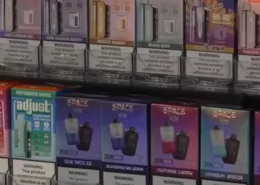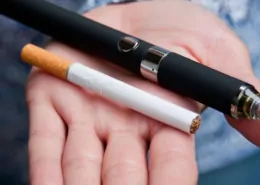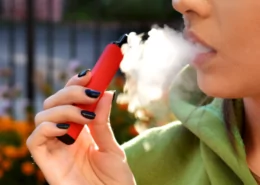Indonesian Vape Industry Protests Jakarta’s Strict E-Cig Rules
Vape businesses and consumer associations in Indonesia are raising strong objections to a draft regional regulation (Raperda) by the Jakarta Provincial Government that proposes to treat electronic cigarettes (vapes) on par with combustible tobacco cigarettes within its Smoke-Free Area (KTR) policy. The Indonesian Vape Consumer Association (Akvindo) argues that equating these distinct products is a misguided policy that ignores scientific evidence on harm reduction and could unfairly restrict adult consumers’ access to less harmful alternatives.
The draft Raperda KTR, currently under review by the Jakarta DPRD, aims to strengthen public health protections. However, Akvindo Chairman Paido Siahaan stated that while they respect efforts to protect public health, classifying e-cigarettes identically to smoked tobacco is “inappropriate and erroneous.” He emphasized that e-cigarettes, which produce vapor rather than smoke, do not generate harmful substances like tar and carbon monoxide found in cigarette smoke. “Equating e-cigarettes with cigarettes in this regulation is not quite right,” Paido said on Friday (June 20, 2025).
He cited international scientific research, including a 2018 report from Public Health England (now UK Health Security Agency), which found that e-cigarettes and heated tobacco products could reduce exposure to risks by 90-95% compared to combustible cigarettes. Paido argued that treating both product categories equally in the regulation “potentially ignores fundamental differences in their risk profiles, which can confuse the public and hinder smokers’ efforts to switch to lower-risk alternatives.”
The draft Raperda KTR (Article 1, Paragraph 6) reportedly defines “cigarette” broadly to include processed tobacco, cigars, and other forms derived from Nicotiana tabacum, as well as synthetics, shisha, e-cigarettes, vapes, and heated tobacco products, essentially any form containing nicotine and tar. This broad definition would extend smoking/vaping bans to numerous public places, including hotels, restaurants, and entertainment venues, with use only permitted in designated, separate open-air smoking areas.
Paido specifically objected to banning vape use in nightlife venues and cafes, deeming it overly restrictive. “We suggest that the DKI Provincial Government consider regulations that differentiate vape from tobacco cigarettes, for example by allowing vape use in certain well-ventilated areas without being limited to special smoking rooms,” he proposed. Akvindo is calling for inclusive dialogue with all stakeholders, including user associations, to develop regulations that are proportional, evidence-based, and support adult smokers’ transition to better options without sacrificing consumer rights. “Good regulation must consider the balance between protecting public health and the right of adult consumers to access low-risk products,” Paido concluded, offering Akvindo’s readiness to contribute scientific data to support fair policymaking.
- Read more: Indonesia Jakarta to Ban Vaping and Smoking in Public with Heavy Fines
- News source: Pengusaha Protes Pemerintah Soal Aturan Rokok Elektrik
- Austria Plans to Ban Disposable E-Cigarettes - August 5, 2025
- Vaping vs. THC Drinks: Which Cannabis Option Is Right for You? - August 4, 2025
- Colombia’s New Vape Law: A Reality Check on Enforcement - August 4, 2025









